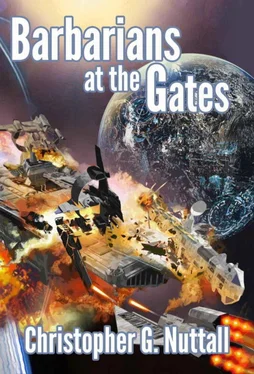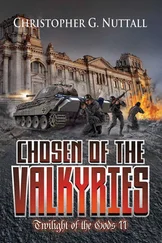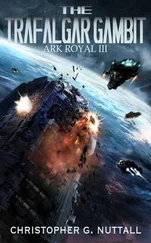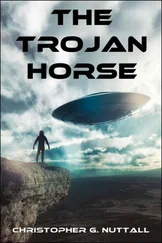And that doesn’t include the political bias that was woven into the material. In my later years, one of my teachers was a Scottish Nationalist who painted a very unpleasant picture of Margaret Thatcher. Another refused to acknowledge that Britain had ever had an empire. A lecturer on the American Civil War called it “The War of Northern Aggression.” In short, what little formal history I was taught was unsatisfying.
I was lucky enough to be able to read from a young age and that gave me access to a vast selection of history books and sources that my teachers pretended didn’t exist, or didn’t matter. I read stories of wars, of men who built empires and men who broke them, of entire areas of history that my teachers had declared verboten . In my youthful imagination, I saw myself flying with the RAF in 1940, invading France with Eisenhower and Monty in 1944; waging war beside Clive and watching as Caesar crossed the Rubicon. As I grew older, I delved deeper into the underlying reasons behind wars and their outcomes, for even dull economics could be made interesting.
I do not claim to be a historian. I have certainly had no formal training in researching history. But then, I have never felt the lack.
Those who do not learn from history, as the saying goes, are condemned to repeat it. This lesson, echoing down the ages, still applies today. Let us consider, for example, the events that led up to the insurgency in Iraq. The Coalition merrily assumed that the Shia—who had suffered horribly under Saddam—would rise up in support of the invasion. This was, as a cursory look at the history of the region would have shown, a naive assumption. In 1991, the Shia rebelled against Saddam, under the impression that the West would come to their aid. The West did nothing to stop the slaughter. It was easy to predict, even without hindsight, that the Shia wouldn’t risk rebelling again. Why should they trust the Coalition to protect them?
I cannot claim, either, to be a specialist in any given area of history. My interests have always been wide-ranging and, if I cannot give you precise details on the Court of the Sun King, I can tell you why the French Empire never matched the British Empire. (Think economics and relative power projection capabilities.) However, in studying different societies and how they interact (internally and externally) I have come to two conclusions about human societies.
-First, any system of government is affected by entropy. It can and it will decay. There will be a massive growth in governmental responsibilities, bureaucracy and quite probably a separation of the rulers (the political class, however defined) from the ruled. If you imagine the government as a human body, imagine its arteries slowly being jammed with fat.
-Second, the entropy process can be slowed or even reversed through two agents; the active participation of the ruled in ruling and the presence of a hostile competitor. If the government is accountable to the population, the political class is pushed into remaining honest or risk losing power. If there is a nearby enemy eyeing the state with covetous eyes, the state is forced into competition, which keeps it honest.
Let us consider, for a moment, Imperial China. At the risk of generalising, the Chinese Government decayed to the point where the entire country stagnated. The Chinese system simply could not adapt when new and very unwelcome people made their appearance in China. The Chinese rapidly found themselves helpless before the modern technology of Britain, France, Russia and even Japan. Had China’s government been flexible enough to realise that change—and reform—were desperately needed (even as late as 1900), the history of China would have been very different. Instead, China endured a long period of misery and now groans under Communist rule.
A second example might be Imperial Japan. The Japanese adapted fairly well when they were confronted by hostile nations; they managed to remain independent and mastered modern technology. Their political system, however, remained insulated from the population (and reality) and the Japanese deliberately started a war with a far stronger nation. The result was Japan’s burning in 1945 and a long period of occupation.
A third example might be the Union of Soviet Socialist Republics, the USSR. The average member of the USSR’s government (effectively Russia’s government, with the other nations as satellite states) had very little connection to the general population and, therefore, was capable of inflicting untold misery on them without either knowing or caring what was going on. The forced collectivization of Soviet agriculture stole the incentive for actual production from the farmers, so the USSR was never able to feed itself; the absence of incentives for actual work from industrial workers crippled the Russian industry, the ever-present supervision of the KGB destroyed political discourse and the crushing weight of Marxist doctrine prevented a rational attempt to cope with Russia’s colossal problems. The USSR literally rotted away from within and left behind a traumatised continent.
A fourth example might be Saddam’s Iraq. At one time, Iraq appeared to be on the route to dominant power in the Middle East. Unfortunately, all of the power rested in Saddam’s hands (a typical problem in dictatorships) and disagreeing with Saddam rarely led to a long life. Saddam’s failure to understand that invading Kuwait would bring Iraq into conflict with the West meant that war was inevitable; his failure to abandon Kuwait before the Coalition attacked meant that Iraq was going to be hammered; his refusal to abandon his WMD programs meant that there would never be peace; his failure to learn the lessons of Gulf War One meant that Gulf War Two was a quick defeat for Iraq. Iraq’s core problem was that Saddam was insulated from both reality and his own population. He didn’t care about their suffering, although it did allow him to cynically blame it on America.
What, therefore, does history teach us about the future? First, tyrannical states (however defined) cannot be expected to care about the suffering of their own population. Second, tyrannical states will act in ways we consider irrational because the well-being of their own people isn’t on their list of concerns. Third, an unquestioned doctrine (Marxism-Leninism or Fundamentalist Islam) can push its high priests into doing stupid or irrational acts in the name of the doctrine. Fourth—and most importantly—no amount of concessions will change their behaviour. It has to be made clear that the leadership will be targeted if rogue states decide to cause trouble.
History, I’m afraid, also teaches us that far too many people will refuse to grasp those points.
But what does this all mean for the West?
The West (by which I mean Europe, America, Australia and New Zealand), on the face of it, doesn’t have those problems. We have not birthed a tyrant who took the reins of power and wreaked havoc. I am perfectly aware that people threw mud at President Bush and are throwing mud at President Obama. Even so, the worst of the West’s recent rulers (Jimmy Carter? Richard Nixon? William (Bill) Clinton? Tony Blair? Jacques Chirac?) was never a tyrant.
The West is not perfect. Far from it. But the West is still paradise compared to even a “benevolent tyranny,” if such a state can be deemed to exist outside theory.
Even so, the West has problems. One of them is that there is an increasing separation of rulers and ruled. It doesn’t take much investigation to see political leaders acting in ways that—if done by anyone else—would have resulted in the most serious of consequences. Sometimes—as in the UK Parliamentary Expenses Scandal—they become a farce. If that wasn’t bad enough, there is a growing trend among politicians to assume that if they hang on long enough, the world might forget the scandals and they might be able to continue in power.
Читать дальше












